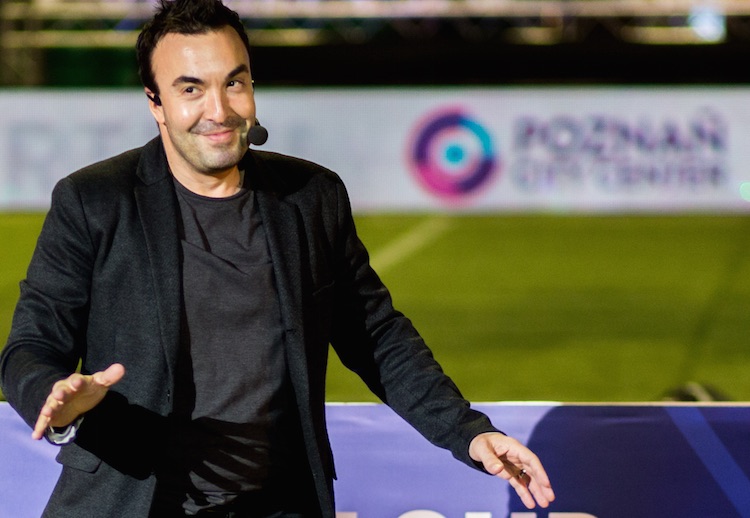Most Coaches Do NOT Realize How Powerful They Are
Hey Coaches, Every Word You Say Can Have A Big Impact
A global sports psychologist and author specializing in soccer, Dan Abrahams is based in England and works with professional soccer players in the English Premier League (EPL). Abrahams has helped hundreds of soccer players – many who play in the English Premier League (EPL). From working with players at Crystal Palace to QPR, Fulham, and West Ham among others, Abrahams makes a huge difference.
Every word a coach says has a huge impact.
Coaches know how to motivate their players to reach their full potential.
Here is SoccerToday’s columnist Abrahams on how why every word a coach says makes an impact, both good and bad.
Every Word A Coach Says Should Make an Impact
But are we always so careful about what we say to our players?
Coaching soccer isn’t just about setting up your team, drilling their technique and skills, supervising small sided and keep ball games. In fact, to my mind, those things, the non-negotiable hard skills are the easy skills.
A player’s confidence grow or diminish in every youth soccer session
These basic skills are your rod and staff and every coach should have a fair amount of competence in these areas of technical and tactical acquisition.
As someone who has, over the past decade and a half, delivered at all levels of soccer, from leading English Premier League (EPL) clubs down to grassroots youth soccer teams, I firmly believe that the soft skills are the hard skills.
The psychological and social components of development and performance are the areas so often ignored by coaches, yet they are the mediators between bad and good sessions, good and great sessions. Let me explain myself a little.
Do you know how to help soccer players focus better? Do you know how to help soccer players deal with distraction? Do you know how to help a youth soccer player reach their full potential?

If not why not?
Player development is more than training easy skills.
Concentration control gets to the very heart of excellence in sport. Do you know how to help a player develop self-efficacy (self-belief) and performance confidence? If not, why not?
Belief and confidence build or break depending on the Coaches words and actions.
Have you ever considered coaching to be dominated by the three C’s: communication, communication, and communication?
Every word you say impacts every thought they have. Every word you say delivers an injection of cortisol and adrenaline or dopamine and adrenaline – in other words, stress or focus.
Every word a coach says builds confidence or damages confidence.
Every word you say reinforces a helpful behavior or a destructive one.

Dan Abrahams’ Five Ways To Communicate Better with Youth Soccer Players:
1. Keep your communication towards what you want, not what you don’t want. The number of PROFESSIONAL coaches in England who shout out “Don’t foul” is extraordinary. Not only does a player release a picture of fouling the player into his or her mind, he or she also becomes tentative, fearful and anxious.
2. Be precise: We’re all passionate about the game – so it’s easy to waffle…especially before or after training (I can be very guilty of this).
Make your points clear, precise and succinct.
Let the players leave with your voice resonating through their mind…and remember, a couple of really bang-on points only.
3. Ask questions: guided learning helps players become a student of the game and a student of their game. It helps tap their natural curiosity and works at a deeper, more semantic level than if you are constantly telling someone what to do.
4. Correction rather than criticism: negatives are like velcro to the brain. The brain is evolutionarily programmed to remember negatives…so be careful with your communication when talking to a player about a weakness or a mistake.
It’s not rocket science – the classic sandwich communication work wonders “You’ve been passing it really well lately…it’s been really positive, well done. But I noticed you gave the ball away when you were under a bit of pressure in the match – can you tell me a bit more about that?”
A coach can ask, “I watched it from the sidelines and I saw something — what do think you can do a little better next time when you’re in that situation?”
5. Enjoy the silence: Lastly, rule number one! Coaches feel they have to talk all the time – don’t. Let them play.
Let them make mistakes. Let them enjoy freedom on the pitch. Let them have fun with the ball.
Related Articles: Soccer Lovers’ Best Ever Soccer Book Guide: Soccer Tough: Simple Football Psychology Techniques to Improve Your Game by Dan Abrahams

Dan Abrahams is a global sports psychologist specializing in soccer. He is based in England and has some of the leading turn-around stories and case studies in English Premier League history.






